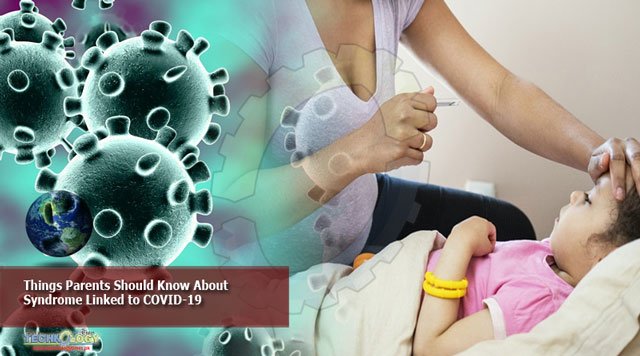With less than 0.1 percent of all deaths from COVID-19 occurring in people under age 18, children have been significantly less affected by the pandemic than older adults. But that doesn’t mean they’ve been spared.

- Hospitals have seen a spike in cases of MIS-C, a rare pediatric condition related to COVID-19.
- MIS-C can cause inflammation of vital organs, including the heart and lungs, and be deadly.
- Symptoms of MIS-C include a persistent fever, rash, vomiting, diarrhea, bloodshot eyes, and abdominal pain.
With less than 0.1 percent of all deaths from COVID-19 occurring in people under age 18, children have been significantly less affected by the pandemic than older adults.
But that doesn’t mean they’ve been spared. Exposure to the virus that causes COVID-19 puts kids at risk of a serious condition known as multisystem inflammatory syndrome in children (MIS-C). The condition can cause problems in major organs and, in some cases, lead to death.
While the condition is rare, cases of MIS-C have spiked in recent months. And as states continue to roll back restrictions on schools and businesses, experts are concerned that more children could be put at risk of this potentially deadly condition as they wait for a COVID-19 vaccine.
MIS-C is a condition that causes severe inflammation in children’s organs, such as the heart, brain, lungs, kidneys, and gastrointestinal system. While doctors have yet to determine the specific cause of the syndrome, it’s known to occur in children who had the virus that causes COVID-19, or spent time around someone with the disease, sometime within the last few weeks.
“We think that a COVID-19 infection can set off this very excessive immune response that causes inflammation throughout the body that can affect multiple organs,” explained Dr. Christina Gagliardo, a pediatric infectious disease specialist at Atlantic Health System in New Jersey.
MIS-C is not common, but when it occurs, it can be life threatening. At least 33 childrenTrusted Source have died from MIS-C, according to Centers for Disease Control and Prevention (CDC) data last updated on March 1.
“A child with severe MIS-C requiring them to be placed on a ventilator or ECMO (extracorporeal membrane oxygenation), which is a machine that does the job of the heart and lungs, could be in the hospital for a week or more,” added Gagliardo.
Despite the severity of the condition, the vast majority of children with MIS-C ultimately recover. However, doctors worry that the condition, like COVID-19, may cause lasting damage to children’s health.
“We’re concerned about long-term cardiac impacts,” said Dr. Lawrence Kleinman, pediatrician, professor, and chief of the division of population health, quality, and implementation science at the Rutgers Robert Wood Johnson Medical School. “We don’t know what may be triggered by MIS-C that’s waiting to show itself at some point in the future, and that will take time to know.”
Symptoms of MIS-C can look a lot like other illnesses, so it can be tough to know if your child is showing signs of the condition. Typically, it involves a fever that lasts for a few days.
Other symptoms of MIS-C include:
- rash
- vomiting
- diarrhea
- soreness in the neck
- red or bloodshot eyes
- fatigue
- abdominal pain
“Some children can also have swelling of the hands or feet, or enlarged lymph nodes in the neck,” added Gagliardo.
If your child has any of the symptoms of MIS-C, get in touch with your pediatrician or a healthcare facility for an evaluation.
The CDC Trusted Source says you should seek emergency care if your child is experiencing:
- confusion
- an inability to stay awake
- chest pain
- trouble breathing
- extreme abdominal pain
- paleness, or blue or gray skin, nail beds, or lips
MIS-C is a very rare condition, but it can be fatal, so it’s important to continue COVID-19 prevention strategies, like wearing masks, social distancing, and handwashing, said Kleinman.
“People look at percentages and say that COVID-19 is not a bad disease in kids, and that’s only true if you don’t get really sick or get MIS-C,” he said. “It’s a small proportion of children who get it, but the numbers are meaningful, and some people are devastated by it.”
Originally Published by healthline